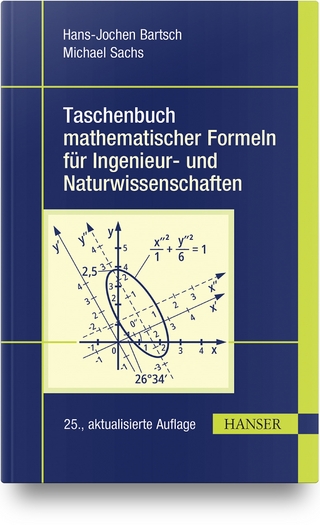
Simplicial Methods for Higher Categories
Springer International Publishing (Verlag)
978-3-030-05673-5 (ISBN)
This monograph presents a new model of mathematical structures called weak n-categories. These structures find their motivation in a wide range of fields, from algebraic topology to mathematical physics, algebraic geometry and mathematical logic.
While strict n-categories are easily defined in terms associative and unital composition operations they are of limited use in applications, which often call for weakened variants of these laws. The author proposes a new approach to this weakening, whose generality arises not from a weakening of such laws but from the very geometric structure of its cells; a geometry dubbed weak globularity. The new model, called weakly globular n-fold categories, is one of the simplest known algebraic structures yielding a model of weak n-categories. The central result is the equivalence of this model to one of the existing models, due to Tamsamani and further studied by Simpson. This theory has intended applications to homotopy theory, mathematical physics and to long-standing open questions in category theory.As the theory is described in elementary terms and the book is largely self-contained, it is accessible to beginning graduate students and to mathematicians from a wide range of disciplines well beyond higher category theory. The new model makes a transparent connection between higher category theory and homotopy theory, rendering it particularly suitable for category theorists and algebraic topologists. Although the results are complex, readers are guided with an intuitive explanation before each concept is introduced, and with diagrams showing the interconnections between the main ideas and results.
Simona Paoli has been active in the field of higher category theory for fifteen years and she has a very strong track record of innovation in this area. She is an expert in the use of multi-simplicial techniques in higher category theory and in applications to homotopy theory. She collaborated extensively with leading researchers both in category theory and in algebraic topology.
Part I.- Higher Categories: Introduction and Background.- An Introduction to Higher Categories.- Multi-simplicial techniques.- An Introduction to the three Segal-type models.- Techniques from 2-category theory.- Part II.- The Three Segal-Type Models and Segalic Pseudo-Functors.- Homotopically discrete n-fold categories.- The Definition of the three Segal-type models.- Properties of the Segal-type models.- Pseudo-functors modelling higher structures.- Part III.- Rigidification of Weakly Globular Tamsamani n-Categories by Simpler Ones.- Rigidifying weakly globular Tamsamani n-categories.- Part IV. Weakly globular n-fold categories as a model of weak n-categories.- Functoriality of homotopically discrete objects.- Weakly Globular n-Fold Categories as a Model of Weak n-Categories.- Conclusions and further directions.- A Proof of Lemma 0.1.4.- References.- Index.
"This book is a research monograph and is primarily aimed primarily at professionals and advanced graduate students working in topology or category theory. It would also be useful to those working in theoretical physics or algebraic geometry who use higher category methods. ... The author's solution to the homotopy hypothesis is appealing as well as geometrically and categorically insightful." (MAA Reviews, April 7, 2020)
| Erscheinungsdatum | 16.06.2019 |
|---|---|
| Reihe/Serie | Algebra and Applications |
| Zusatzinfo | XXII, 343 p. 262 illus., 12 illus. in color. |
| Verlagsort | Cham |
| Sprache | englisch |
| Maße | 155 x 235 mm |
| Gewicht | 709 g |
| Themenwelt | Mathematik / Informatik ► Mathematik ► Allgemeines / Lexika |
| Mathematik / Informatik ► Mathematik ► Algebra | |
| Schlagworte | Algebraic models of homotopy types • Higher categorical structures • Higher groupoids • Homotopy hypothesis • Internal categories • Models of weak $n$-categories • Multi-simplicial techniques • Pseudo-functors • Segal maps • Tamsamani model • Weakly globular $n$-fold categories |
| ISBN-10 | 3-030-05673-2 / 3030056732 |
| ISBN-13 | 978-3-030-05673-5 / 9783030056735 |
| Zustand | Neuware |
| Informationen gemäß Produktsicherheitsverordnung (GPSR) | |
| Haben Sie eine Frage zum Produkt? |
aus dem Bereich


